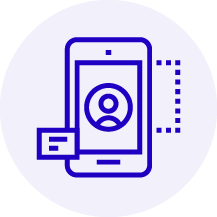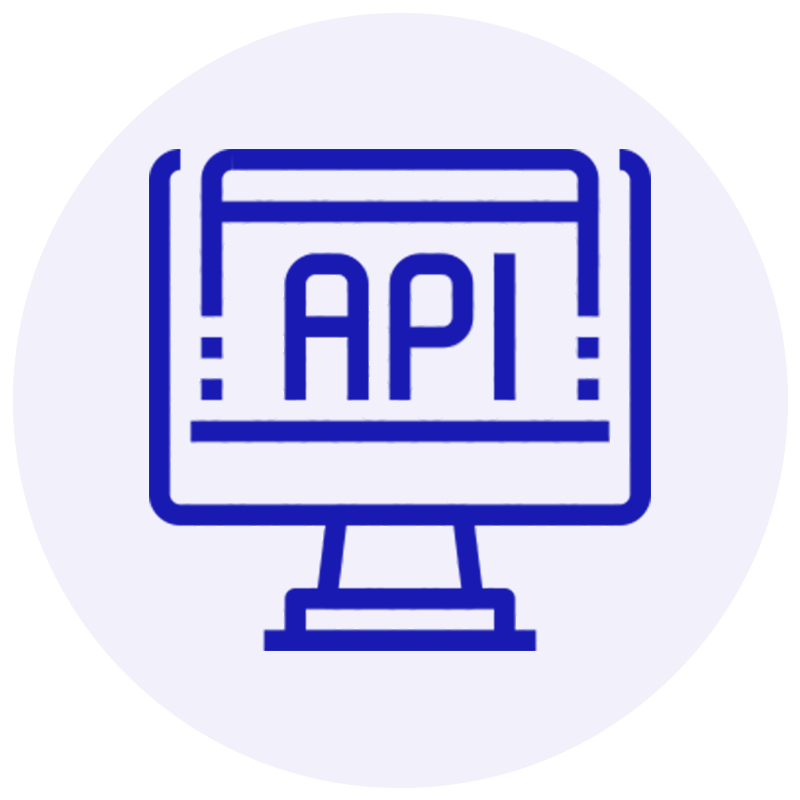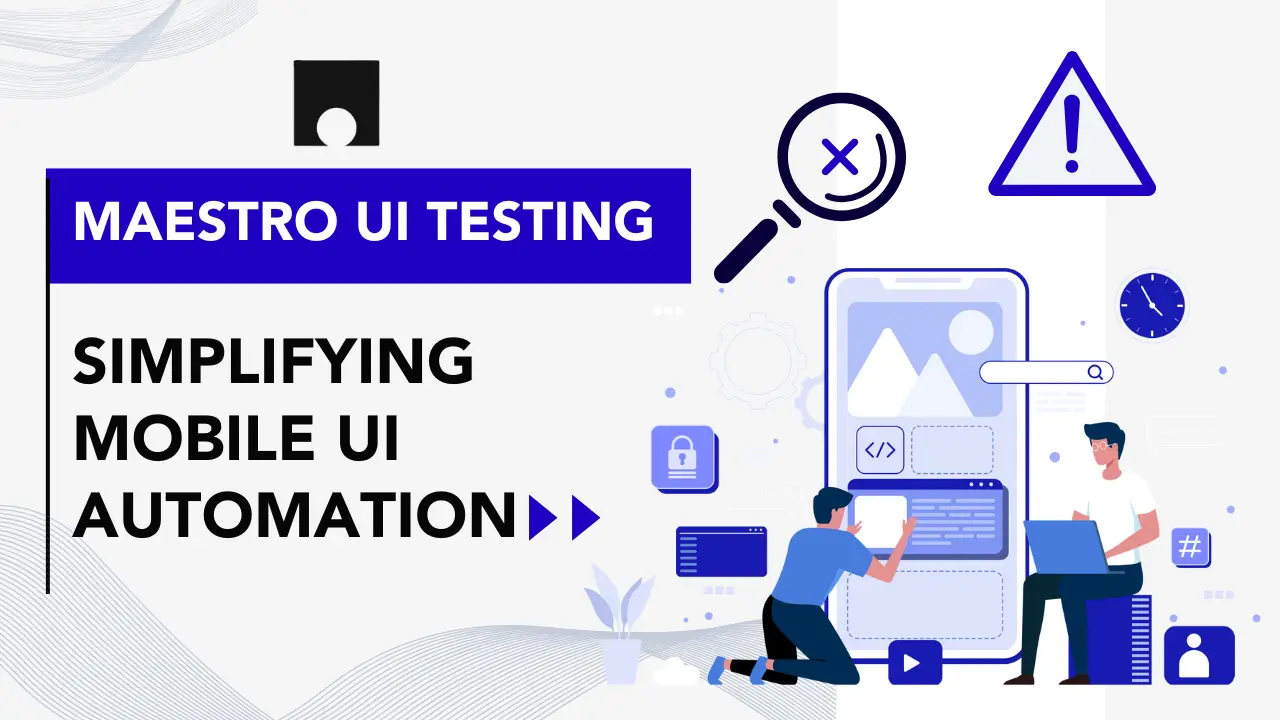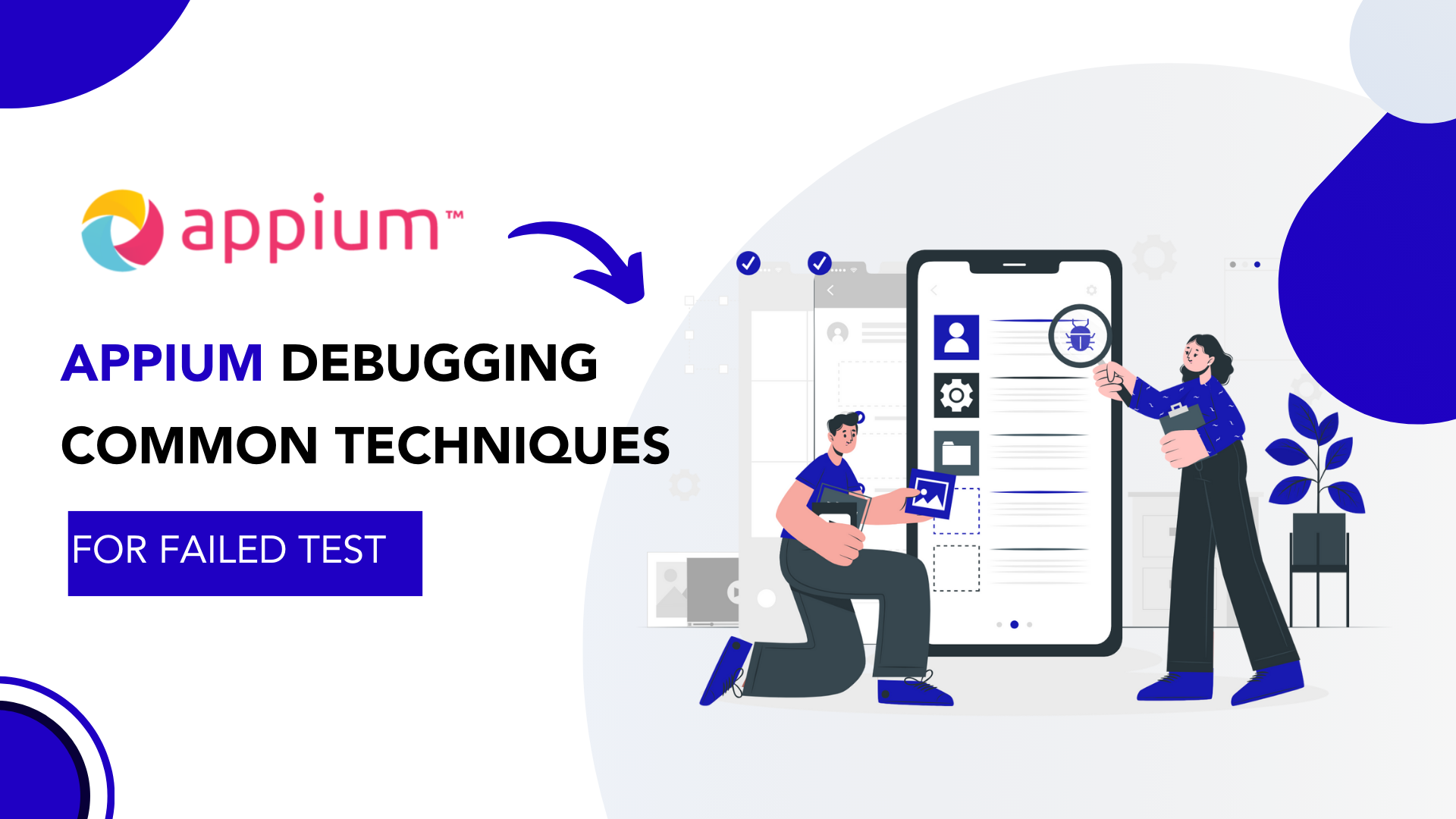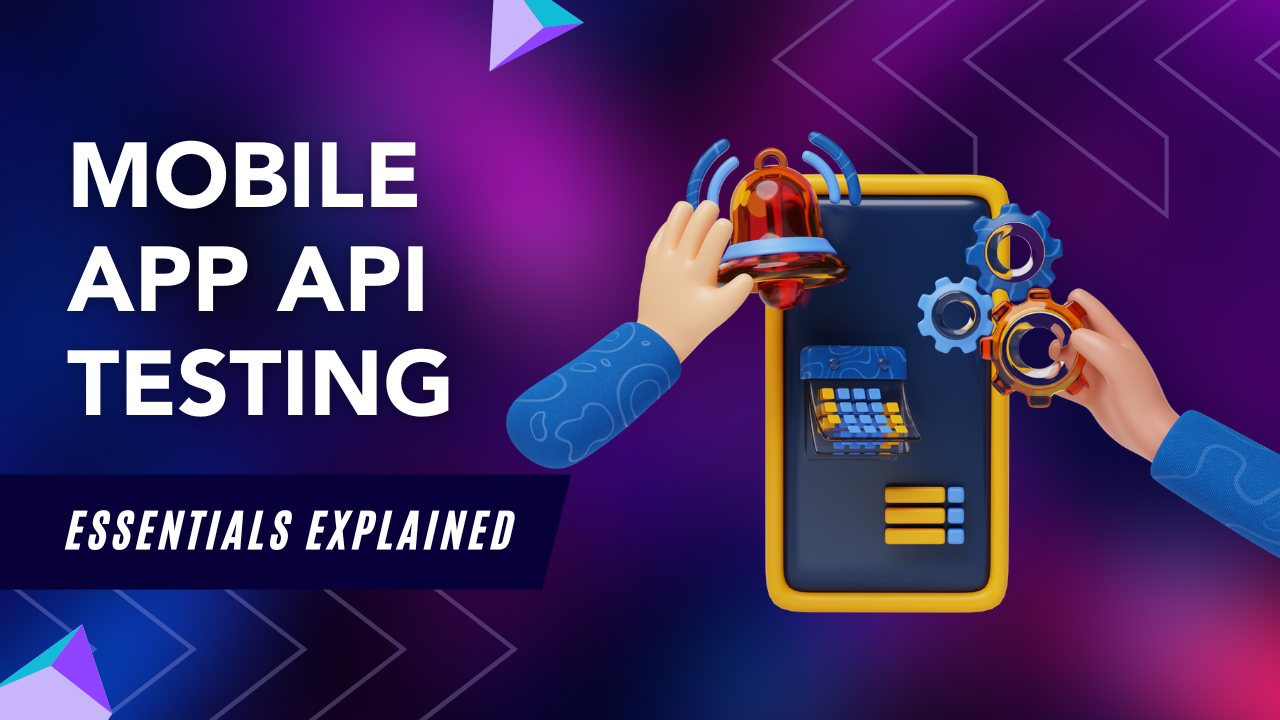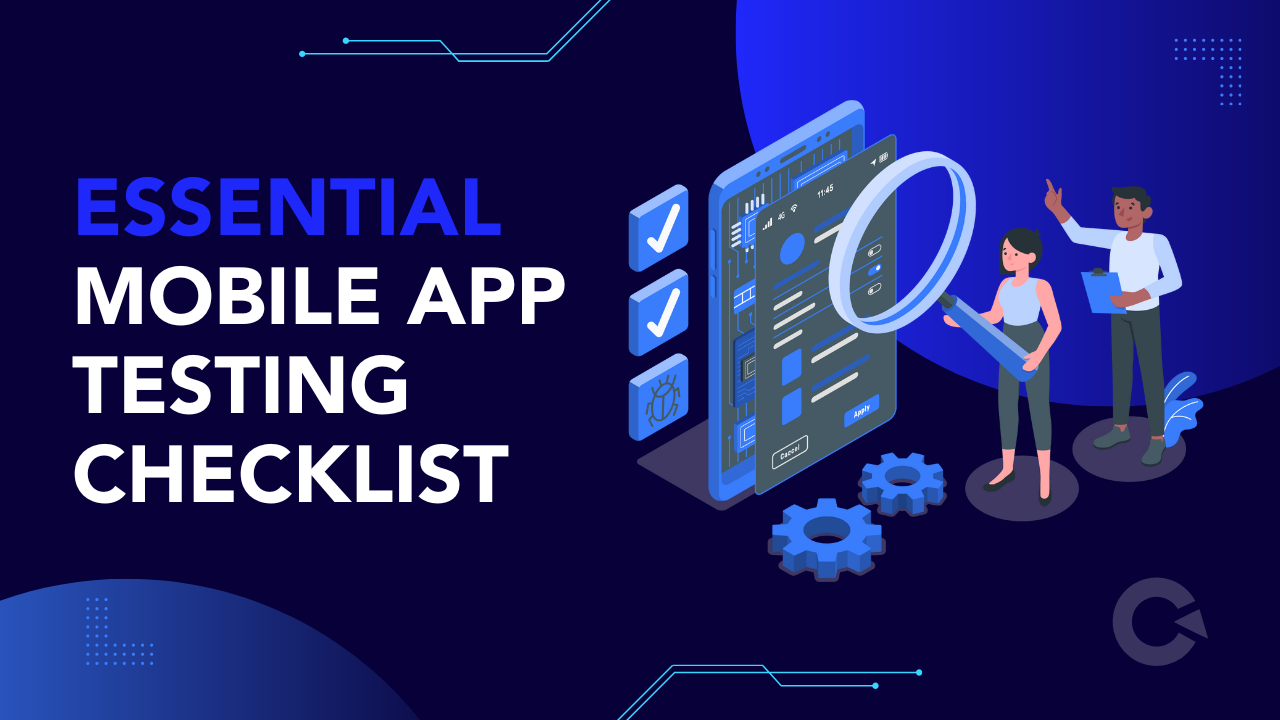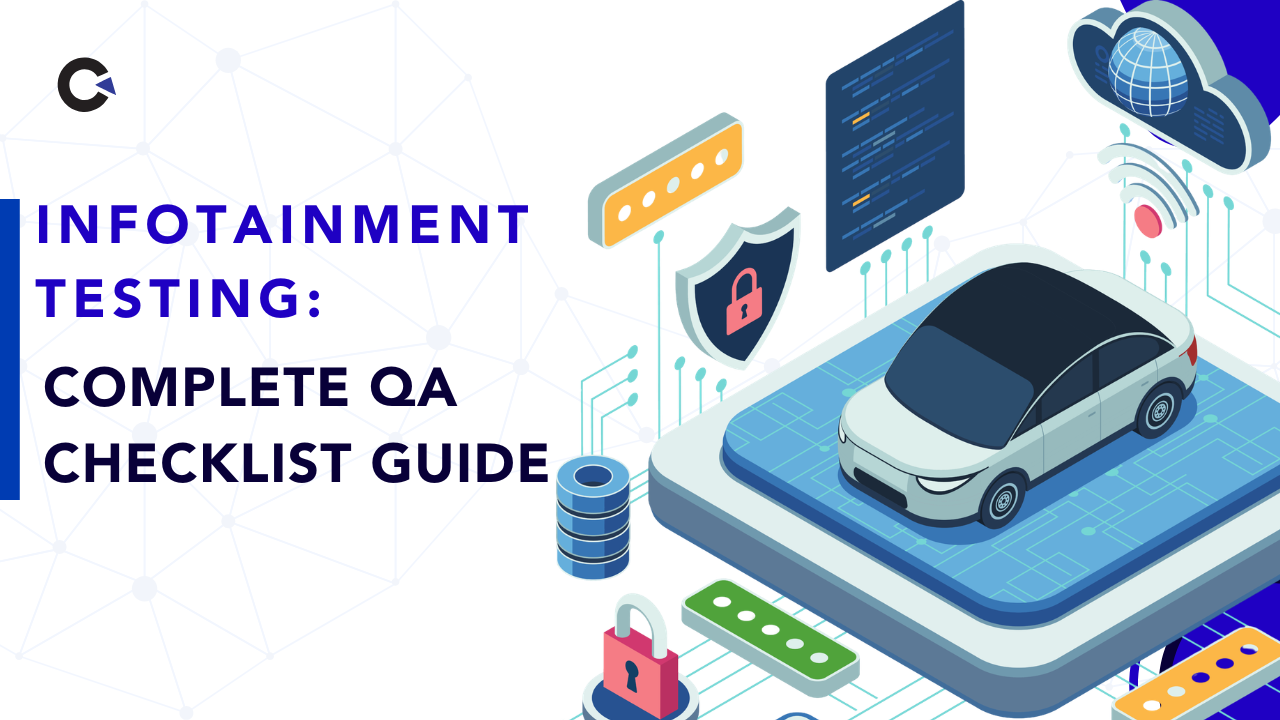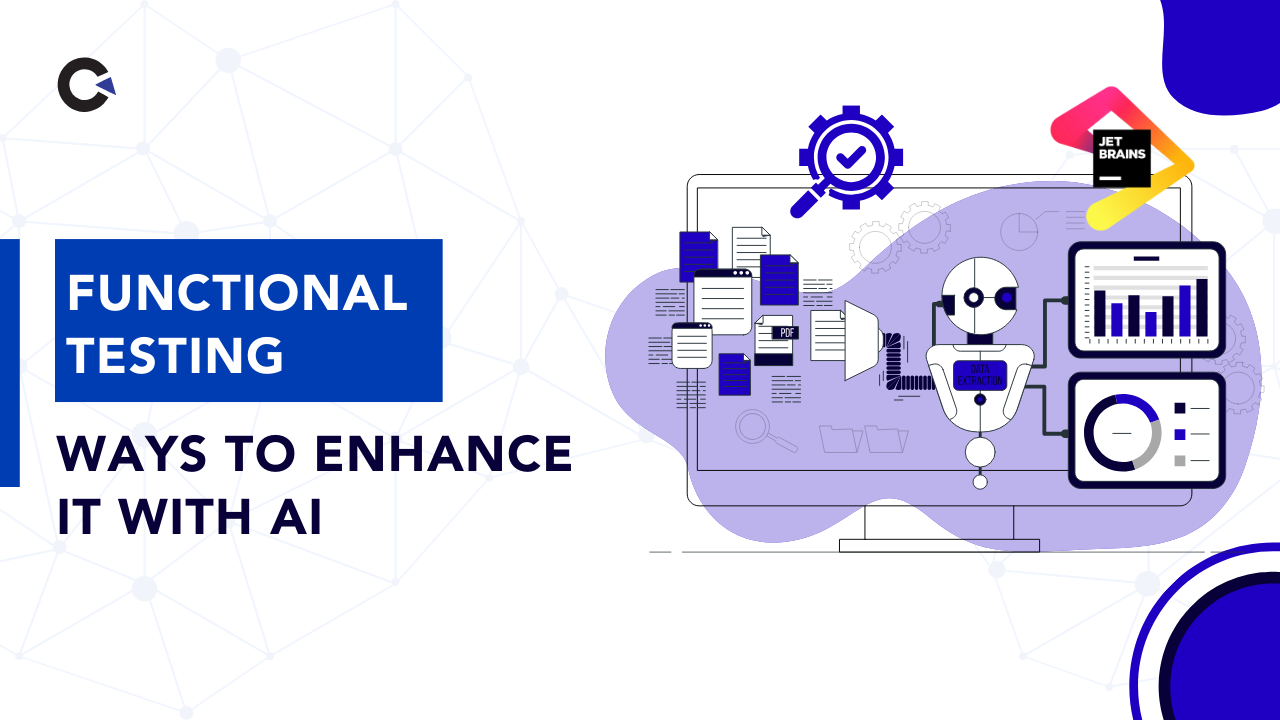
by admin | Sep 22, 2019 | Mobile App Testing, Fixed, Blog |
The mobile technology has been growing by leaps and bounds. The hardware configurations too have improved phenomenally over the last decade or so, In fact it’s the software that actually unleashes the real attribute of these devices. As a matter of fact what really drives the incredible success of smartphones and tablets is the application market which is projected to grow further in the years to come.
A giant leap of this sort invariably poses loads of challenges to developers, as they always have a sense of urgency to produce mobile apps quickly and efficiently for the diverse market segment. Mobile testing teams are always on the toes as they venture to test mobile apps properly before they are out in the market. Mobile market testing has always been a challenge.

The four key challenges of mobile testing are listed below for your reference. These are the major roadblocks that one needs to overcome if you wish your testing plan to succeed.
Fragmentation – Mobile apps are meant to be able to run on a wider variety of different device combinations and subsequently on different OS versions. The number of possible permutations and combinations is daunting.
Usability challenges – The way we interact and use touchscreens is still evolving and a smart user interface design is crucial if you intent to create an app that users can pick up and use intuitively. The solution for the same lies in looking beyond the functional aspects of the application and consider usability.
Network challenges – The performance of the service provider or carrier network will have a tremendous impact on the user’s experience with a mobile app. This is another challenge beyond the hardware and software that, notwithstanding, must be taken into consideration for testing scenarios. What is the impact of low signal strength, 3G or 4G networks, and different Wi-Fi speeds? What are the consequences when the network drops and you switch to Wi-Fi or vice versa? How does the app operate offline? Are there constraints with particular chipsets, or is memory being impacted in unexpected ways?
Tools – As mobile testing is still in its nascent stages the tools at your disposal are very limited when compared to traditional software testing which has hundreds of thousands of tools available in the market.
The four key challenges of mobile testing are listed below for your reference. These are the major roadblocks that one needs to overcome if you wish your testing plan to succeed.
Fragmentation – Mobile apps are meant to be able to run on a wider variety of different device combinations and subsequently on different OS versions. The number of possible permutations and combinations is daunting.
Usability challenges – The way we interact and use touchscreens is still evolving and a smart user interface design is crucial if you intent to create an app that users can pick up and use intuitively. The solution for the same lies in looking beyond the functional aspects of the application and consider usability.
Network challenges – The performance of the service provider or carrier network will have a tremendous impact on the user’s experience with a mobile app. This is another challenge beyond the hardware and software that, notwithstanding, must be taken into consideration for testing scenarios. What is the impact of low signal strength, 3G or 4G networks, and different Wi-Fi speeds? What are the consequences when the network drops and you switch to Wi-Fi or vice versa? How does the app operate offline? Are there constraints with particular chipsets, or is memory being impacted in unexpected ways?
Tools – As mobile testing is still in its nascent stages the tools at your disposal are very limited when compared to traditional software testing which has hundreds of thousands of tools available in the market.
There’s a lot to ponder over in the planning stage. A successful mobile app testing strategy will include a right blend of varied range of devices for obtaining maximum coverage. It will also include some real devices, emulators, and perhaps few remote access devices delivered through cloud service. Above all consideration of real world conditions should not be overlooked. How different locations and fluctuations in connectivity will impact the app? How the app handles hiatus such as incoming calls, text messages, social media notifications. performance, security and usability. The level of automation which can be achieved acts as a deciding factor in making the project more manageable.
Adopt a solid mobile testing plan
You won’t be creating a holistic mobile testing plan and then just repeat it until the app ships. Business requirements will change during the course of your project and you need to plan it stage by stage. Use emulators to identify bugs and functionality issues. You can subsequently move to real devices, and perhaps remotely accessed devices, later when you begin testing in real-world conditions and considering security and network impact.
However you can validate the quality of the product primarily through functional and usability testing, but be aware of the fact that all new features may be thrown into the mix during development. Everything must be validated before it is released into the live environment. Do not forget to take in to account the compatibility and impact of all the essential upgrades.

Testing in the real-world
It is imperative to emulate the end-users as much as humanly possible which means going way beyond optimal conditions.
You need to think about low-level resource usage and watch out for buffering problems or garbage data generation. Security considerations include data encryption and multi-user support handling. What you have seen so far is just the tip of the iceberg for effective mobile testing. It is humanly not possible to cover all scenarios here, but this will throw some light on what are the vital aspects to be considered, and help you to create a holistic mobile testing plan.
Conclusion:
As a leading Mobile app testing Services Company, we completely understand that there will be challenges aplenty while testing a mobile app, however, success lies in the adoption of right mobile app testing strategy combined with deliverables from a team of passionate testers. We excel at every gamut of mobile app testing and would love to help your business succeed – connect with us today to work with the best Mobile App testing professionals in this arena.

by admin | Sep 30, 2019 | Mobile App Testing, Fixed, Blog |
Software testing is an interesting realm, albeit challenging and tough to grasp without taking the time to learn it well. As leaders of the software testing ‘ring’, we are highlighting some of the common errors that newbie testers often make, which can be detrimental to their role and the overall quality of the projects they may undertake. Newbie testers often underestimate the importance of their role, which in turn leads to a nonchalant attitude, poor quality work, and loads of rework.

Newbie Common Errors
1. New testers often fail to understand the whole gamut of testing and the role it plays in the Software Development Lifecycle (SDLC). They sometimes display a gross underestimation of the skills and complexity required to undertake software testing tasks – which in effect is a clear undermining of their own place in the entire gamut
2. Their seems to be a distinct disregard for the analytical approach, while approaching problems with a switch mechanism – leading to less than adequate results.
3. New testers seem to forget that they need to take market expectations of a product, and hence fail to carefully assess the ability of the system against those expectations. Given the inexperience, they fail to understand the major repercussions on the success of the product in the market.
4. The ability of experienced testers to predict and match the behavior of end-users provides much-needed feedback for development, as also any possible red flags. However, newbie testers often fail to undertake this crucial step leading to susceptibility and intensified risk for the new product.
5. Newbie testers, if not guided, fail to develop the awareness of the fact that their role has the ability to significantly and positively contribute to making a product successful
6. Another common yet significant blunder that new testers make is forgetting to or not having the ability to transform their learning and answers into action. While asking questions is extremely important, newbies get stuck into the whirlpool of overanalysis and thinking resulting in being apprehensive about making the wrong choice. This apprehension sets them back and keeps them from taking any kind of action. The good news is that there is enough information and experts in the realm of QA services who can help you make the right decisions, including those related to career paths. Taking action is a sure (even if small) step to progressing towards success.
7. Not staying focused is another common error trap that new testers fall into. Completely opposed to the error of not taking action, some testers are over-enthused which leads them to take too many actions at a time. The job of a software tester is not to multi-task – it leads to poor execution and several minute errors slip through unnoticed, which can create major problems during the course of a project.
8. Newbie testers are unable to prioritize – experienced testers on the other hand would create a methodical list with the most urgent problems to be sorted out first, and thereby are able to keep up with the most stringent deadlines. This is an art and a science both of which new testers must learn and grasp at the beginning of their career and must learn from the masters of software testing services. It is important to stay patient, resilient, and exercise patience to master the craft of software testing.
In Conclusion
Another important aspect that newbie testers must remember is the matter of security. Today data breaches and cyber-attacks are becoming increasingly common and potent. New testers must understand the criticality of protecting private data and therefore speedily learn the intricacies of thoroughly testing apps and web platforms to ensure top-notch lines of defense.
Having said all of the above, we at Codoid excel at teaching since we understand that mistakes happen, but it is important to learn from them and not repeat the same mistakes. It is good to make ‘new mistakes’ since that means moving down new roads, acquiring new skills, and learning new techniques – all of which make better testers. It takes time and effort but we endorse all the sweat and pain because of the immense satisfaction gained from being indispensable to top-quality software and apps. Connect with us to know more and learn from the best.

by admin | Aug 26, 2019 | Mobile App Testing, Fixed, Blog |
Soft skills are quintessential to the success of all people, and software/mobile testers are no different. The best mobile testing companies place huge emphasis on soft skills since these elevate the effectiveness of individual and teams of testers. Soft skills also complement the hard-core technical skillsets of test engineers, allowing them to add value to their performance on the job. When learned and practiced over time, these skills can contribute significantly to the work output of mobile testing personnel.
Communication
Reading, writing, and communicating lucidly is important to the success of any testing project. A software testing company that supports clear and open communication enables testers to organize and convey their thoughts with clarity. The audiences for such communication would include both technical and non-technical personnel. Therefore, the best mobile app testing companies need to understand the experience and usage of soft skills skillsets of mobile tester before hiring them. Additionally, software testing companies must organize training programs to help inculcate and sustain the soft skills of their personnel.

Problem Solvers
Robust soft skills enable test engineers to explore testing ideas and present these to development and testing teams. This role of a tester is akin to an educator who communicates with an audience and elicits reactions to further the cause of testing projects. Such communication could extend to testers assuming the persona of an end-user and communicating the expectations of the existing and potential customers to the testing teams. In addition, soft skills can empower testers to navigate roadblocks within testing projects, motivate teams to devise fixes and remedy the application, and communicate product improvements to software developers and end-users.
Understanding of Business Strategy
Mobile testers must develop empathy for the end-user to appreciate their point of view – leading to a speedier and successful software testing project. Empathy allows testers to assess the performance of an application from multiple perspectives, which in turn drives the development of a quality digital product. Listening and understanding carefully, enables testers to understand the nuances of the client’s business strategy and devise testing strategies accordingly.
Adaptability
Change remains constant in the business climate and testers working with mobile testing companies must adapt their strategies to manage and keep pace with the change. Testers must remain adaptable to changes requested by clients, manage the alterations in technical parameters of a product, adjust to new requirements, and other such modifications. Such adaptability enables testers to remain competitive in their realm of work with mobile app testing and more, and emerge as better team players.

Willingness to Learn
Testers must remain stay abreast of the latest developments and evolving technologies in their chosen domain – including new tools, programming languages, testing methods and implementation strategies. Testers would be able to elevate the quality of their contribution and develop in their chosen realm when they remain open to new ideas. A willingness to learn also equips average testers with the ability to recommend novel testing strategies and drive better outcomes for their clients.
Tenacity
Technical abilities must be complemented by tenacity to withstand changes and volatility that exists with customer demands and the business environment. This attribute is critical considering the nature of the job of a mobile tester. Detecting glitches in software packages and remediating these to the satisfaction of the client, ensuring that bugs and defects do not occur again, and consistently ensuring the highest quality in software products. The best mobile testing companies must encourage such practices in the interests of delivering quality software to clients and customers.
Creativity
Mobile testers have a creative approach to their work. Major mobile app testing companies, value creativity in testers since this attribute empowers techniques that test myriad hardware and software combinations. A creative bent of mind also enables testers to fully grasp the possibilities of a software application, and explore the potential to expand functionality in these applications. Additionally, testers can use their creative ability to create new testing approaches and techniques, resulting in a world-class product and delighted end-users.
In Conclusion
Soft skills are significant contributors to the overall work of software/mobile testers, enabling them to become significantly more competitive and better at job assigned to them. Such skills, when cultivated over time, can add definitive value to testing processes, and elevate testers at par with software developers. Connect with our team to work with some of the best and experienced testers in the industry.
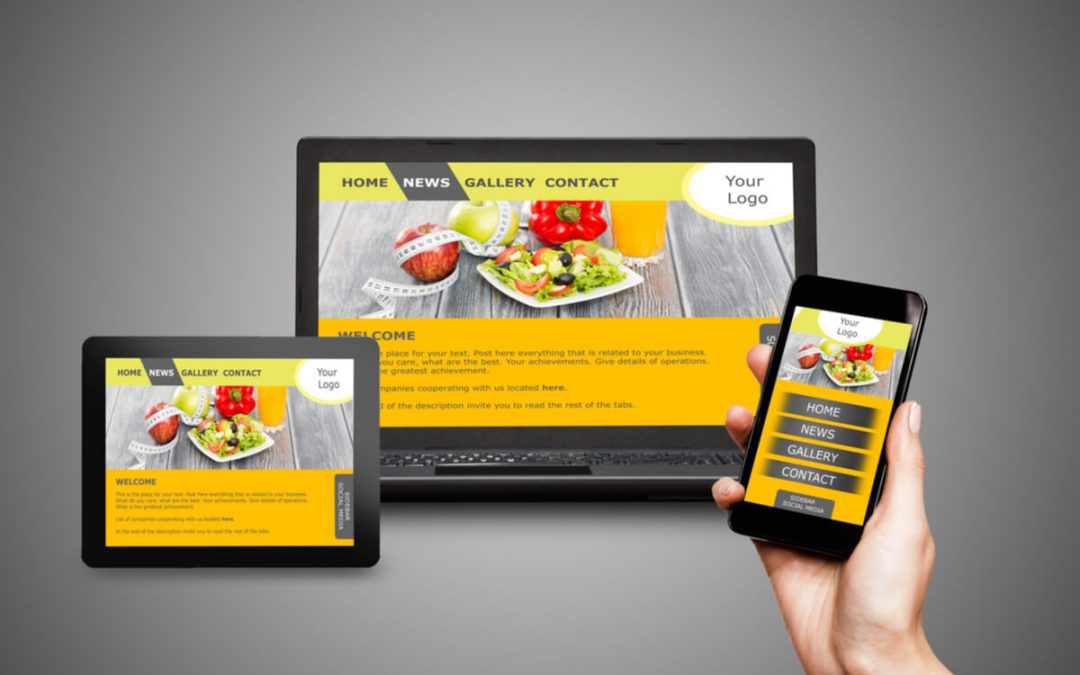
by admin | Sep 4, 2019 | Mobile App Testing, Fixed, Blog |
With the shift towards digitization and the resultant increase in the use of mobile devices to access information and company websites, it makes sense for companies to invest in mobile apps and responsive web design (RWD). It also makes sense to adopt a mobile-first strategy to prioritize the user experience through mobile devices. Companies need to partner with a software testing company that excels at responsive mobile app testing services and strategies and more, and one that consistently displays a forward thinking approach.

The reason that companies must use the services of an experienced software testing partner is that testing at scale is a major challenge, as is consistently delivering an optimal user experience. Even now, a large part of responsive web design (RWD) is manual and this too is conducted only on the release of a significant new functionality. Only an experienced team of software testers would be able to maintain reliable automated tests to cover responsive states, which in turn would ensure that no bugs go unnoticed, there is seamless user experience, resulting in an increase in users and revenue. The fact is that the billions of mobile users access websites daily, and without RWD it would be tedious and annoying for them if images or links do not fit on their mobile screens, or if these are too tiny to see. Such websites, apps, and sites are quickly dropped, with a slim chance of users coming back to them, wasting all the precious time, money, and efforts put into creating such sites and apps.
The Checklist of Testing for Comprehensive RWD
Responsive web design is primarily related to websites, focusing on ensuring that mobile users have a seamless, fast, and easy experience when viewing a website, irrespective of the device they use to view the websites. The leading search engine Google too lends priority to mobile-friendly sites in the search results, making responsive web testing strategies critical to the success of your business. As a business you must know what comprises an effective responsive design testing and the software testing/QA outsourcing company has a reputation of proficiency in mobile testing services.
Ensure Compatibility during DevelopmentThe software testing team becomes accountable and must ensure that the features and functions accessible to users of a website through their laptops or desktops are also accessible and usable by those viewing the website on their mobile devices. The screens and pages must seamlessly align to the dimensions and resolution of the mobile device in use, thereby elevating the user experience.
Ensure Compatibility of DesignThe market today is flooded with a mind-boggling variety of mobile device designs. It is not feasible or possible to perform responsive design mobile testing services on all devices. However, a broad mix of devices can be taken into consideration during the testing phase, with software experts ensuring that there are no overlaps of images and design elements. To customize testing strategies, the software testing company must consider the largest user base for their client and collect data on the devices they mainly use. Experts say that RWD testing is ideal for devices with screen resolution ranging from 320 pixels to 2560 pixels.
Easy Multiple Mode ViewingThe landscape and portrait modes are the two modes on any mobile device, and users could use either of these to view websites. It is imperative that the feel, look, and functioning of a website is the same in both these modes. The job of testers would be to check that designers/developers have ensured the auto adjustment of images and texts to fit the mode chosen by users.
Simulation of the WebExpert testers propagate that developers must focus on ensuring minimal image/file size for the mobile version of a website. This helps to reduce load time, which can be critical to success since accessibility to a high-speed network may not always be possible for users. Performance and load time must not be poor under any circumstance in order to sustain user attention and keep them engaged for a long period.
Content DisplayThere is a marked difference between content viewed on a large screen vis-à-vis a small mobile screen. Expert software testers understand this difference, and when testing, are able to ensure that the content is clear and easy to read on any screen size.
In Conclusion
Responsive mobile app testing does pose challenges, and needs focused observation and the implementation of smart and multiple testing strategies. A software testing company with experience, skill, and knowledge will be able to use a range of evaluators and testing tools to gain the best results. A progressive team of testers will however, continually learn, exchange ideas, ask questions, and communicate regularly with their clients to get the best results within stipulated timelines and budgets. For all this and top class customer service, connect with us now.

by admin | Aug 28, 2019 | Mobile App Testing, Fixed, Blog |
The highly fragmented and ultra-competitive market for mobile applications offers significant business opportunities for idea generators, developers, and testers alike. Consequently, the QA testing cycle designed by mobile testing services engineers is undergoing compression in terms of timelines. Efficiency has emerged as the cornerstone of mobile app testing services, and this metric has the ability to enable developers and testers of mobile apps to meet customer expectations. Non-functional testing such as security and usability testing play an important role in ensuring the success of contemporary mobile apps.
Planning
Engineers offering mobile app testing services must design a plan for mobile app testing processes. Such plans define the types of testing they wish to execute, the testing methodology, manual and/or automated testing processes, KPI specifications, number of testers in a schedule, and other such information. These queries, when answered before the start of a testing project helps make the app testing process faster and more efficient. Some engineers create a test plan that describes the scope of testing, test strategy, objectives, effort, schedule, and the required testing resources.

Continuous Testing
Market research indicates mobile app testing schedules follow weekly release builds, followed by bi-weekly releases. This pace of testing reveals that mobile testing services are eagerly embracing continuous integration and continuous deployment techniques and practices. The efficiency factor undergoes significant boosts when testers implement continuous testing systems and processes. This implies executing automated tests regularly to generate instant feedback on testing outcomes and implementing remediation. Additionally, continuous mobile app testing services hinge on configuring error reporting to identify all the glitches during production. Further, continuous testing includes beta testing to detect bugs while a mobile app is in production (but not yet released to all users)
Automated App Testing
This form of software testing can be run frequently, since it enables mobile testing services engineers to focus on exploratory, security, or usability testing. The benefits of mobile app automation testing extends to fewer errors in testing schedules, the ability to schedule testing in the absence of human talent, faster test execution, and more. Further, mobile app testing services can save time and money when they opt for this form of mobile app testing. The preparation for such testing includes monetary investments to buy licenses for automated testing tools, writing scripts, and setting up an appropriate test environment. Experts in the realm of test automation corroborate that this form of testing reaps rich rewards given constrained timelines imposed on mobile testing services.
Test in the Cloud
Cloud computing excels in providing test environments for mobile testing services. The cloud offers effective fits for all types of testing enterprises ranging from start-ups to legacy businesses. Companies that invest in cloud-based mobile app testing can automate tests on hundreds of digital devices, each running on a different platform. Additionally, cloud-based mobile app testing allows developers and testers around the world to communicate and connect to mobile devices via the Internet. Cloud technology also offers testers seamless access to a range of devices with different OS platforms, versions, network carriers, and others. Also, simulators and emulators available in the cloud empower testers to perform actions such as swiping, double-tapping, zoom, scrolling, rotate inside a virtual app. Further, such forms of mobile app testing services allow faster detection of performance issues inside mobile applications.
Resource Allocation
Leaders of mobile app testing services must adjust testing resources in tune with project requirements. This could involve hiring extra numbers of QA testing engineers or outsourcing specific segments of mobile app testing services. Some companies may choose to enhance their competitiveness by hiring remote software testers. Team management is a vital aspect of optimizing the available test resources, and therefore, it would make sense to hire expert managers who would be able boost the mileage of mobile testing services.
In Conclusion
It is critical for mobile app testing teams to attain and sustain higher levels of efficiency, thereby presenting a definitive ROI for clients and customers. Refining and extending such testing paradigms can help bring a larger number of highly functional mobile apps to the market. We are amongst the leaders in the realm of mobile app testing and a very large gamut of testing services. Connect with us to gain all the advantages from our experts.

by admin | Jul 30, 2019 | Mobile App Testing, Fixed, Blog |
The mobile paradigm has established a firm grip on various forms of consumer, industrial, commercial, and scientific technologies. Matching pace with this phenomenon, mobile device testing has gained criticality since such activities guarantee the performance of various mobile-native applications. Geography features among the various parameters that could spell success for mobile app testing services. This factor is important given the fact that various segments of the target user base of an app remain dispersed across regions, nations, and continents.
Mobile Operating Systems
Consumers in different nations favor varying brands of mobile devices. An overwhelming number of mobile users in the United States use devices powered by the iOS operating system, while Google’s Android finds millions of users across Asian nations. These facts are amongst the drives of the requirement for expansive strategies in mobile app testing initiatives. This would require testing professionals to forge different test strategies for mobile apps, keeping the requirements of a wider consumer base at the fore. Therefore, mobile app testing strategies must focus on these geographic factors, since they underlie the key aspects of the operational focus of a mobile app testing company.

Settings within a device are typically aligned with consumer preferences in target geographies. This implies that mobile testing strategies should focus on region-specific settings designed into the operating system of mobile devices and hence mobile app testing professionals must design test strategies focused on region-specific usage. For instance, devices and apps meant for use in the Americas must be tested to display financial information in their currency – US Dollars. Similarly, testing must validate the month, date, and year format since certain apps find heavier usage in particular geographies. Apps originating in European nations and with a maximum consumer base in that continent must conform to patterns of usage as per the consumers. The setup and application of mobile app testing services must remain mindful of these factors.
Bandwidth
Internet bandwidth fluctuates in different parts of the world. 4G bandwidth, widely available in certain geographies, tends to perform differently in across nations. Therefore, the providers of mobile app testing services must consider connectivity speeds when testing an app for a particular location. A uniform testing strategy may appear in the list of best practices, but it is important to customize strategies to match connectivity and local usage. This approach would enable testing professionals to monitor the performance of a mobile device in real-world conditions.
In Conclusion
It is necessary to remain cognizant of the centrality of geography to put in place the best mobile device testing strategies. Individual testers may use their experience and knowledge to fine-tune the strategies, thus expanding the scope of intelligent mobile app testing services. We work across the globe, which enhances our knowledge and expertise of the various geographical considerations. Connect with us to gain all these advantages and more.



